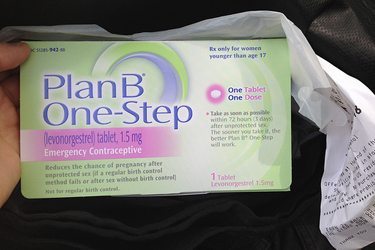Judge Approves Administration’s Strategy for EC Over-the-Counter … With Reservations
Women's groups applaud a judge's approval of the administration's plan to make emergency contraception available over the counter, but remain wary of its commitment to doing so.

Judge Edward Korman tonight approved the Obama Administration’s plan to make emergency contraception (EC) available over the counter, a necessary step required by the court in the ongoing saga to make a simple, effective, and safe method of contraception accessible to all who need it. But he did not conceal his frustration with the administration’s approach to complying with his order.
In his original order, Judge Korman instructed the administration to make two-pill levornogestrel products available over-the-counter. The administration responded with a plan to make Plan B One-Step (PBOS), the brand-name one-pill form of emergency contraception manufactured by Teva Corporation, available instead.
In a letter to Judge Korman protesting the administration’s plan prior to its approval, the Center for Reproductive Rights noted several problems with the administration’s plan. First, in making only PBOS available over-the-counter, the administration was actually ignoring the Judge’s order focusing on making two-pill levornogestrel available without point-of-sale or age restrictions. In doing so, the administration also failed to provide evidence requested by the Judge as to “significant differences” in data between the safety or usage of one- and two-pill versions of EC. Indeed, neither the Department of Justice or the FDA offered any such evidence.
Second, making PBOS available OTC requires a change in labeling by the FDA, something for which the administration failed to provide a definitive timeline. And third, PBOS is far more expensive than generic forms of two-pill emergency contraception, meaning that an extremely time-sensitive contraceptive method for which it will be difficult to obtain insurance coverage will cost upwards of $50.00 over the counter, a cost barrier many teens and low-income women will find difficult to overcome. Judge Korman clearly recognized these problems. “The real problem relating to cost deals
with the potential period of marketing exclusivity that the FDA may grant to Teva [in making PBOS available],” the Judge wrote in his latest order. “Specifically, the defendants’ letter states that, “[i]f FDA grants Teva marketing exclusivity, the scope of that exclusivity may affect the labeling that could be approved for generic equivalents of [Plan BOne-Step].” He then stated that the administration’s course of action “obfuscates the true effect of the FDA’s grant of marketing exclusivity to Teva,” and confers “a near-monopoly that will only result in making a one-pill emergency contraceptive more expensive and thus less accessible to many poor women.”
Judge Korman further noted:
It is only because of the extraordinary efforts by the plaintiffs in pursuing their Citizen Petition that Teva is able to seek approval of an SNDA that will permit it to market its product with no point-of-sale or age restriction. Such approval, if given, will be nothing more than a reward to Teva for playing along with the defendants’ efforts to maintain their legally and scientifically unjustified restrictions on the marketing of levonorgestrel-based emergency contraceptives. It is the plaintiffs, rather than Teva, who are responsible for the outcome of this case, and it is they, and the women who benefitted from their efforts, who deserve to be rewarded.
